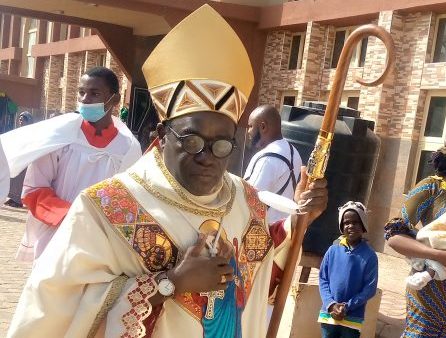In WITNESS TO JUSTICE, Mathew Hassan Kukah documents gross human rights violations in Nigeria like never before. The author also pricks the conscience of yesterday’s men of power and other culprits of the evil of that dark era
By Sylvester Asoya
After many years, WITNESS TO JUSTICE, a book by Mathew Hassan Kukah, the cerebral clergyman and one of Nigeria’s most famous priests, still resonates. It is the story of Nigeria’s many tragedies and the winding road to justice for victims of injustice and their loved ones. But it is also an account of impunity, waywardness, vindictiveness and disloyalty to country. Kukah is an extraordinary and well-known Catholic priest who pays attention to social and political problems. He is concerned, like most people who work in the Lord’s vineyard, for solutions. So, this book is also about his troubleshooting missions. It must be emphasized that this remarkable reverend enjoys repairing fractured relationships between ethnic groups and individuals and he continues to do well as a conciliator who heals divisions, easily. Beyond his excellent gift of the gab, Kukah is an expert with words, and this is noticeable in the manner he marshals his arguments and humanizes his writing.
But WITNESS TO JUSTICE is a damning report; it will remain a useful document to this generation and generations to come because of its richness and qualitative research. First, it draws the reader’s attention to many of the absurdities in Nigeria and the oddities that almost became state policies, though unofficially, in those unusual years. It also shows state failure and the atrocities closely associated with the military under the deadly regimes they superintended. The book’s account of those years of unforgettable sorrow is frightening but also telling. In this book, Kukah writes about the collapse of professionalism, camaraderie and honour in a military that was once known for integration, discipline and excellence.
Again, the priest tells the story of lawlessness under the different military regimes. And, he brings insight to the torture chambers, the human suffering and the despicable roles of military officers and men who supervised the ill-treatment of their colleagues and fellow citizens. Kukah, in many ways, displays his good education, knowledge of his subject matter and the power of story-telling with his exciting quotes by respected and credible writers and sources. He brings home, comparative case studies and educates the reader on his motif, using analysis and synthesis. It is important to note therefore that the Oputa Panel from where the book came, did Nigeria a great service, especially with regard to the kangaroo military trials under Muhammadu Buhari, Ibrahim Babangida and Sani Abacha. For the first time, aggrieved soldiers had a voice on a matter as sensitive as coup plotting.

In spite of the gains of voluntary disclosures by some of the disgruntled soldiers during cross-examination, Kukah still expresses displeasure with capital punishment as the only way to punish coup plotters. According to him, “the introduction of death by firing squad did not deter soldiers from staging coups, but these macabre dances cheapened the lives of citizens. Nor did it reduce the spate of armed robbery. Thus, many Nigerians grew to accept the culture of injustice and gross human rights violation that was represented by the trials of coup plotters or alleged coup plotters. It was therefore to the credit of the Commission that for the first time, victims of coup trials could come forward and lay claim to the violation of their rights. Hitherto, it had never happened because citizens had grown to accept that those arrested for their involvement on aborted coups got what they deserved. This phase of the work of the Commission was therefore very significant”.
No doubt, Kukah’s training as a priest really came in handy, both at the Human Rights Violations Investigation Commission where he was a member and in writing WITNESS TO JUSTICE. “As a priest, we are trained to comfort the afflicted and also challenge those who subjugate and oppress the people” he once said. But where is the justice in spite of his effort and personal sacrifice in publishing this book? I remember the priest once warned that anyone seeking justice must wear the shoes of a long distance runner. The death of Deborah Samuel, a student of Shehu Shagari College of Education, Sokoto who was murdered for alleged blasphemy by some fundamentalist Muslims, is a case in time. Through out that crisis period that inflamed passions across Nigeria and even beyond, there is no evidence that President Muhammadu Buhari visited the family or spoke directly to the issue. This contrasts sharply with the behaviour of America’s Joe Biden who knelt before George Floyd’s son, said sorry openly and told the lad that America failed his father. Unfortunately, Nigeria is not doing anything to disabuse the minds of people who still hold the view that this most populous country in Africa is uncaring, unjust and unfair to her citizens.
Yes, things look grim but all hope is not lost. This independence anniversary obviously calls for reconciliation. Nigeria also needs healing and genuine forgiveness especially from those still in search of their lost relatives and justice. Surely, this is the time, there could not have been a better occasion.
• Asoya, an art writer and author, wrote from Lagos.